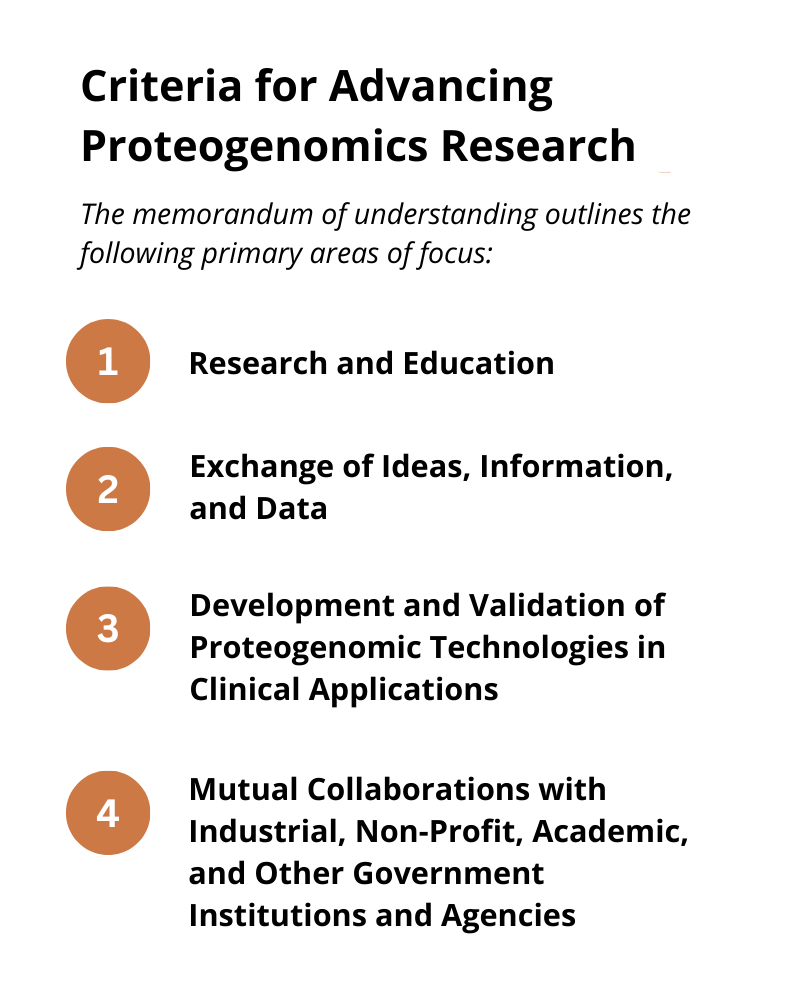FDA and NIH Sign Interagency Collaboration Agreement to Advance Proteogenomics Research

Towards the latter half of 2022, the FDA and NCI, of the National Institutes of Health, announced the signing of a memorandum of understanding to bolster their ongoing collaborations in the application and advancements of proteogenomic technologies and pipelines.
- Pioneering Approaches in Healthcare
- Genome Editing: Novel Technologies, Tools, and Translation to Therapeutics
- Spatial Omics Technologies: Spatial Proteomics, Mass Spectrometry, and Imaging Data Uses
The agreement reached will encourage knowledge sharing and the formation of research teams to enable improved patient response to cancer treatment. Other aims of the interagency collaboration will be to reduce the pain and suffering of cancer patients and improve the standards of living during treatment.

An official press release issued by the FDA describes the agreement as “provid[ing] principles and procedures by which the coordination, collaborative efforts, and information exchanges, in the context of [Center for Drug Evaluation and Research’s Drug Safety Oversight Board] shall take place between FDA and any component of NIH with relevant expertise.”
The memorandum of understanding dictates that “each agency will coordinate and collaborate with the other agency to protect and improve the public health.
To achieve this, each agency will utili(s)e the expertise, resources, and relationships of the other agency to increase its own capability and readiness to respond to public health issues.”
The FDA has since been prioritising and preparing for the anticipated regulatory challenges associated with the accelerated emergence of novel genomic and proteomic technologies. In particular, they identify the requirement for developing haematology and oncology medical products to enhance public health. Improved evaluation methods and analysis development are likewise essential for regulatory approval in proteogenomics-based cancer applications.
Improved evaluation methods and analysis development are likewise essential for regulatory approval in proteogenomics-based cancer applications.
By helping to provide a detailed set of protocols to the research community, along with high-quality regulatory guidance, the two agencies will serve as a conduit for the exchange of information in the field of omics. The hope is that the partnership will significantly accelerate clinical proteomics and proteogenomics research and will enable pioneering precision medicine opportunities in cancer treatment.
Get your weekly dose of industry news and announcements here, and keep up to date with the latest ‘Industry Spotlight’ posts. For other Omics content, please visit the Omics Content Portal.






